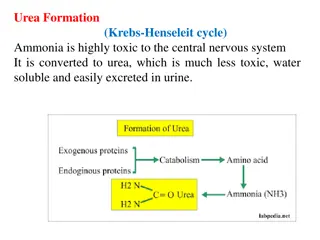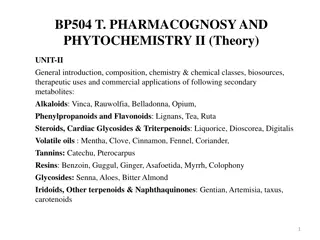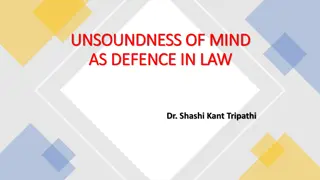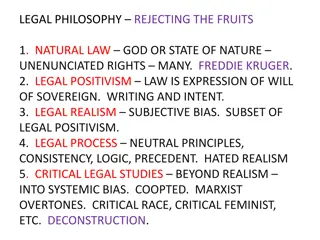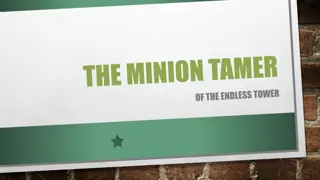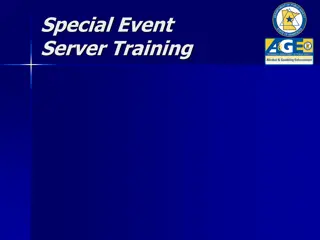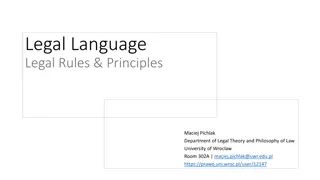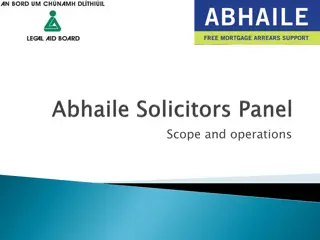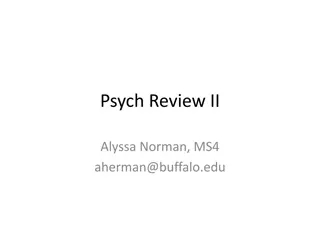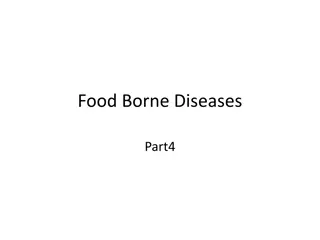Legal Defences of Insanity and Intoxication
The legal defences of insanity and intoxication play a crucial role in cases where individuals may not be fully accountable for their actions. The M'Naghten Rules, devised following the famous case of Daniel M'Naghten, provide guidelines for determining insanity. It's essential for the defendant to demonstrate a defect of reason caused by a disease of the mind to qualify for an insanity defence. However, voluntary intoxication may not be a valid defence if it leads to a temporary psychotic episode. Understanding the nature and quality of the act is crucial in evaluating the mental state of the defendant.
Download Presentation

Please find below an Image/Link to download the presentation.
The content on the website is provided AS IS for your information and personal use only. It may not be sold, licensed, or shared on other websites without obtaining consent from the author.If you encounter any issues during the download, it is possible that the publisher has removed the file from their server.
You are allowed to download the files provided on this website for personal or commercial use, subject to the condition that they are used lawfully. All files are the property of their respective owners.
The content on the website is provided AS IS for your information and personal use only. It may not be sold, licensed, or shared on other websites without obtaining consent from the author.
E N D
Presentation Transcript
Defences Capacity defences of insanity and intoxication Insanity
MNaghten 1843 Daniel M Naghten had become so obsessed with the then Prime Minister, Robert Peel, that he decided to shoot him. Instead, he missed and shot and killed the Prime Minister s secretary, Edward Drummond. He was found to be suffering from extreme paranoia, and was found not guilty by reason of insanity.
MNaghten Rules Devised by the House of Lords following the M Naghten case due to public outcry. Defendant should be presumed sane unless, at the time of the offence, he can prove he was: - labouring under such a defect of reason - caused by a disease of the mind - so that he did not know either the nature and quality of the act or, if he did know it, that he didn t know what he was doing was wrong.
Defect of Reason The Courts have stated that there needs to be a complete absence of the power to reason. Absentmindedness or confusion are not sufficient. Clarke 1972 Woman accused of theft, said she was acting absentmindedly due to depression and diabetes. Court said the rules do not apply to those who retain the power to reason, but don t use it in moments of confusion or absentmindedness.
Disease of the Mind This can be either a mental or physical disease which affects the mind. The term is a legal term and not a medical one. Medical conditions such as schizophrenia are covered but so are many other conditions which would not be defined as being a disease of the mind in any medical sense. Kemp (1956) Sullivan (1984) Hennessy (1989) Burgess (1991) Must be caused by an internal factor. Quick 1973 condition caused by an external factor , the drug insulin, therefore the defendant could rely on the defence of automatism and not insanity.
Voluntary Intoxication Where the defendant voluntarily takes an intoxicating substance and this cause a temporary psychotic episode, then the defence of insanity cannot be used. This is because the intoxicating substance is an external factor. See Coley (2013) and Harris (2013)
Nature and Quality of the Act Defendant does not know the physical character of the act: - because he/ she is in a state of unconsciousness or impaired consciousness; or - he/ she is conscious but does not understand or know what he/ she is doing due to his/ her mental condition. Kemp and Burgess were both in a state of lost consciousness. See the recent case of Oye (2013) for a defendant not knowing the nature and quality of his act.
Nature and Quality of the Act The defendants must prove they did not know what they were doing was legally wrong. If the defendant knows the nature and quality of the act and that it is legally wrong he cannot use the defence of insanity, this is so even if the defendant is suffering from a mental illness as in the case of Windle. Windle 1952: Defendant gave wife overdose of aspirin. When the police arrived he said, I suppose they ll hang me for this! . This last statement was evidence that he knew what he was doing was wrong and he was hanged. Windle was shown to know what he was doing was wrong and knew the punishment in law for his actions. The case of Windle was recently followed in Johnson (2007)
Verdict Not guilty by reason of insanity. Prior to 1991 the only punishment was a hospital order which was not appropriate for those suffering with diabetes, epilepsy, etc. Criminal Procedure (Insanity and Unfitness to Plead) Act 1991 introduced new orders available to the judge: oHospital order without time limit (mandatory for murder) oHospital order with time limit oGuardianship order oSupervision and treatment order oAbsolute discharge
Problems with the Defence It is based on an 1843 case. Definition of insanity is legal not medical. Some defendants who should be regarded as insane are not e.g. Byrne 1960. Defendants suffering with physical diseases like diabetes, or even those who sleep walk are considered insane e.g. Hennessy 1989 and Burgess 1991. Defendant has to prove insanity which may breach ECHR Art 6 Defendant is innocent until proven guilty. There is a stigma to being labelled insane yet it is the only defence available to many defendants. It is the jury s job to decide whether the defendant is insane and they are not really qualified for this.
Reform Royal Commission on Capital Punishment 1953 - suggested those with irresistible impulses would have been covered it never became law. Instead the Government introduced the defence of diminished responsibility but this is only available for murder charges. Butler Committee 1975 - suggested it should be replaced by verdict of not guilty on evidence of mental disorder - this never became law. The Draft Criminal Code 1989 - suggested defendant should be not guilty on evidence of severe mental disorder or handicap - never became law. Criminal Procedure (Insanity and Unfitness to Plead) Act 1991 - gave judges more discretion on disposals where the defendant uses the defence of insanity. The Law Commission's paper in 2012 on insanity and automatism - offers alternatives but does not make any definite proposals
Link with Automatism Insanity is also known as insane automatism - automatism is also known as non-insane automatism. Insanity is caused by an internal factor - automatism is caused by an external factor. The verdict for insanity is not guilty by reason of insanity and will usually result in some form of treatment order. A successful plea of automatism will lead to a complete acquittal.

 undefined
undefined






